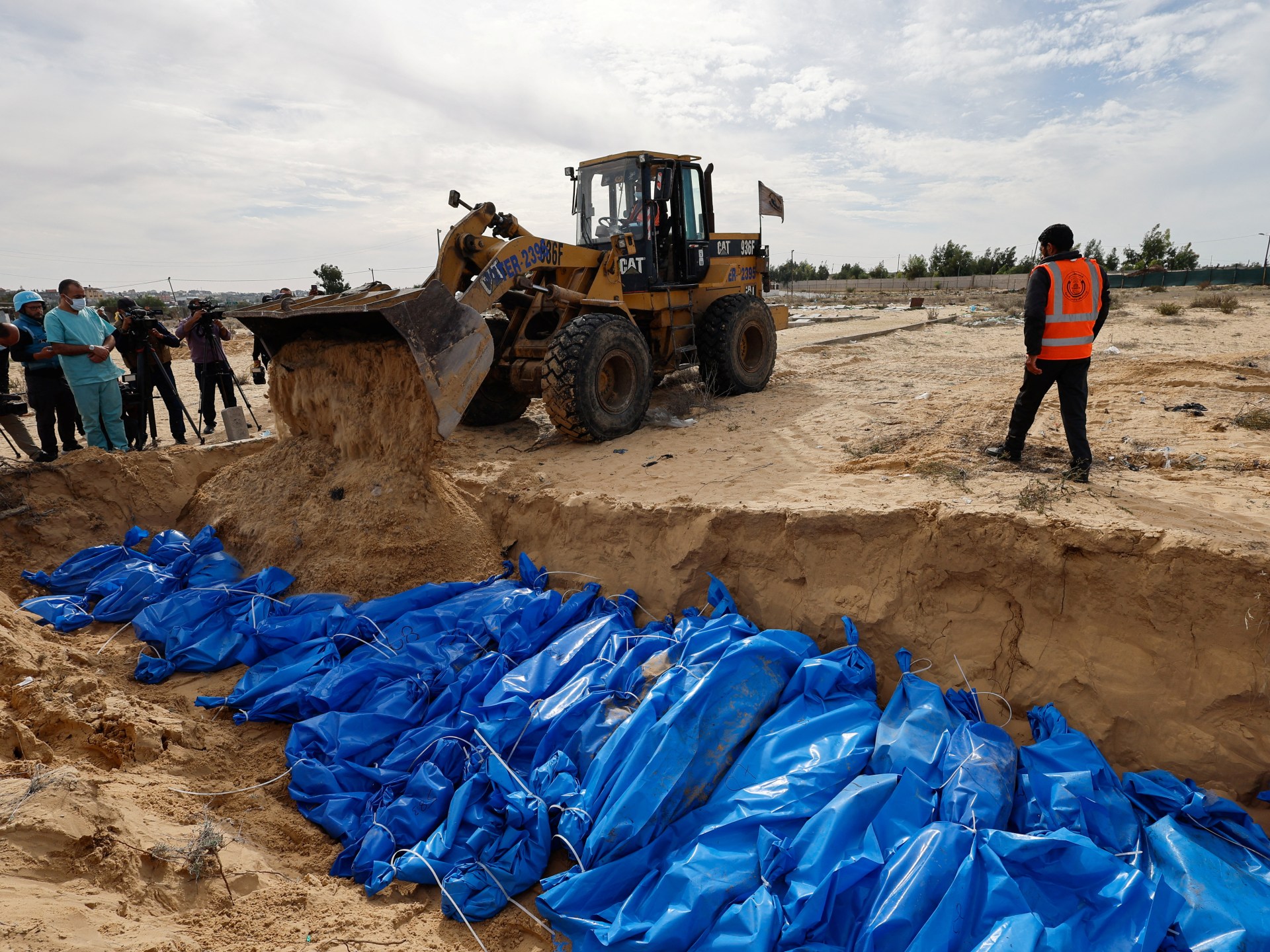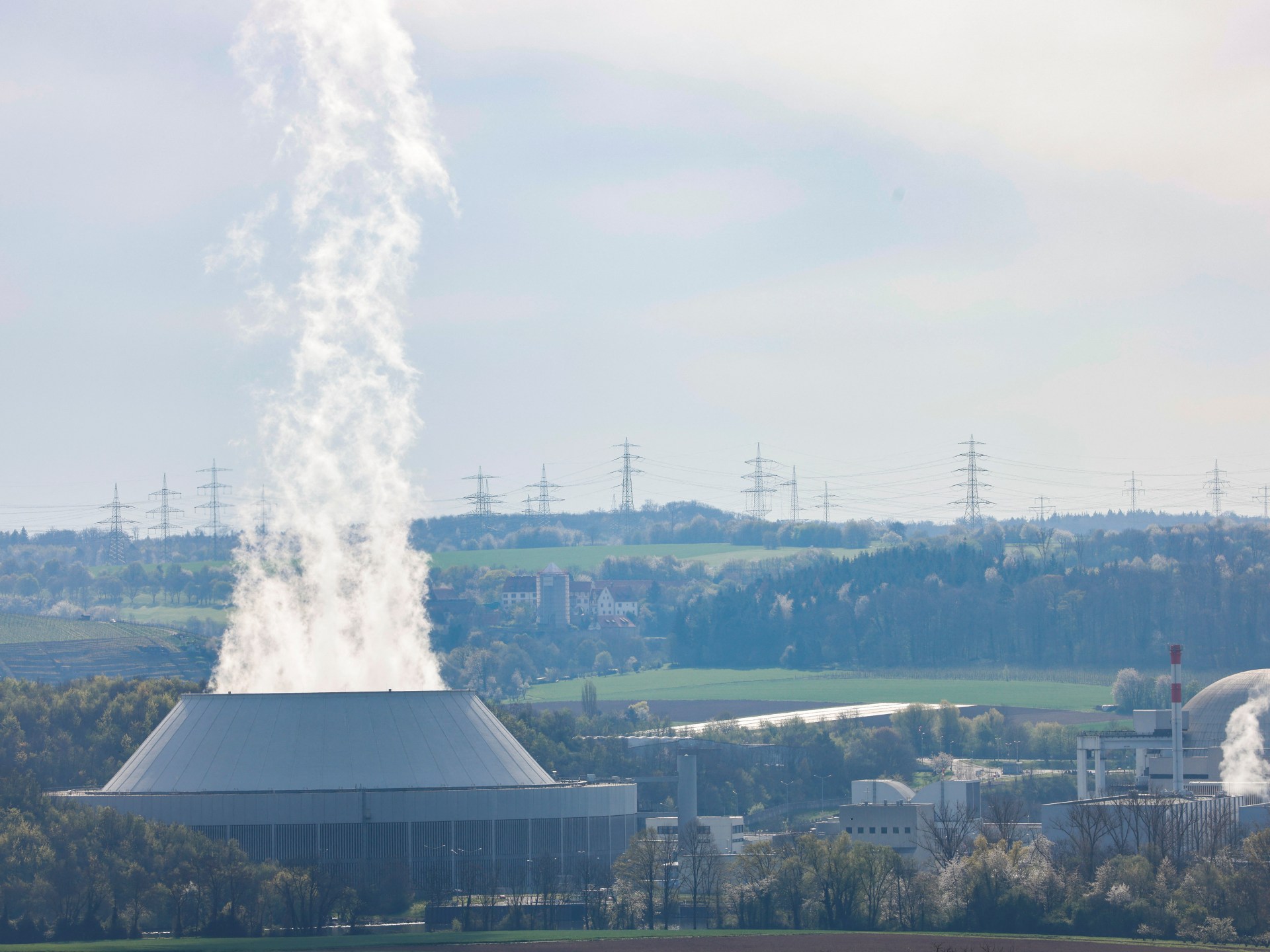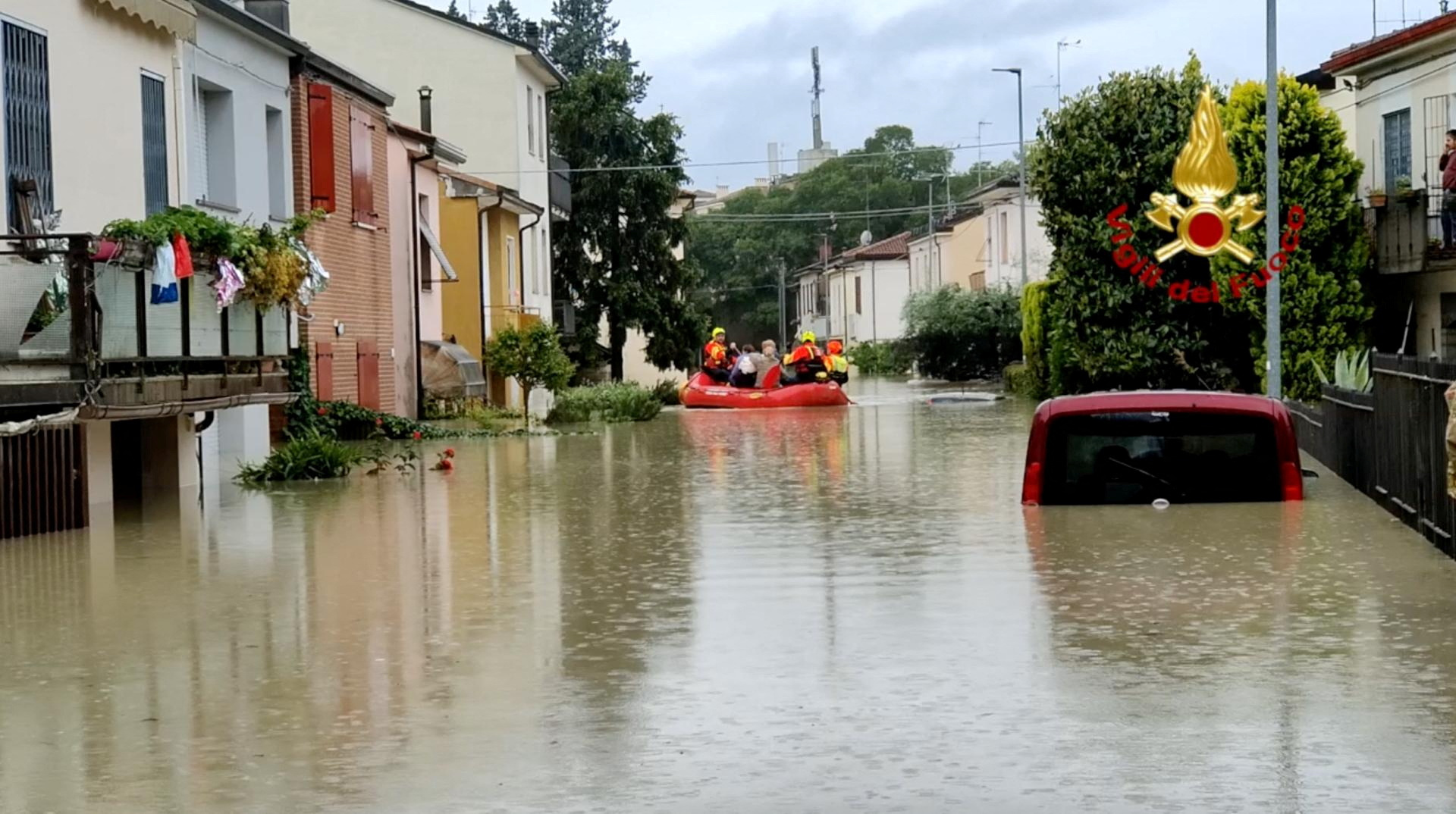A ceasefire in a time of genocide | Israel-Palestine conflict
The bitter reality for us, Palestinians in Gaza, is that we are alone, beleaguered, under siege, and are seen as undesirables even by some of those who are supposed to be our brethren. Forty-five days of barbaric massacres have claimed the lives of more than 14,000 people, including more than 6,000 children and 3,500 women.
Among the thousands of men who have been killed are university students, doctors, nurses, shop owners and youth who were sent out by their families to search for food or water.
More than 7,000 are still missing, including 4,000 children – most of them are dead, buried under the rubble of their homes.
More are dying in bombed-out hospitals rendered unoperational and in the few that are still working but cannot cope with the tens of thousands wounded due to the lack of staff and medical supplies. Soon even more will be dying of disease, hunger and the winter cold.
Israel’s deliberate targeting of civilian homes has completely wiped out hundreds of families from the population register. Some 1.7 million people have been displaced.
For 45 days, Palestinians have been left alone to face the onslaught of the world’s fourth strongest army, which possesses 200 nuclear weapons, hundreds of F-16 jets, attack helicopters, gunboats, battle tanks and armoured vehicles, and hundreds of thousands of soldiers and reservists.
As the humanitarian tragedy in Gaza has reached unimaginable levels, some Arab regimes have done nothing more than issue timid statements, denouncing and condemning. Nothing more.
In fact, Arab regimes have let down the Palestinians since 1948, and to this day, official Arab positions are a combination of cowardice and hypocrisy. They have failed to bring an end to the Israeli siege on Gaza for 17 years now and are now failing to stop Israel’s genocide.
We in Gaza are now wondering how the timid expressions of support coming out of the streets and capitals of the Arab nations can be turned into concrete action in the absence of democracy. We wonder whether the Arabs living under the rule of authoritarian, oligarchical regimes can change them in non-violent ways.
We exhaust ourselves trying to figure out the possible means available to achieve democratic political change, because with the genocide in Gaza and the apartheid regime in the rest of Palestine, we have not seen any practical translation for the solidarity shown by some Arab peoples with Palestine.
Desmond Tutu, the late South African anti-apartheid activist and Anglican bishop, once said, “If you are neutral in situations of injustice, you have chosen the side of the oppressor.”
As I argued during Israel’s brutal assaults on Gaza in 2009, 2012, and 2014, the United Nations, the European Union, and Arab states have not been neutral; they have remained largely silent about the atrocities the Israeli forces have committed. Since thousands of corpses of women and children have failed to convince them of the need to act, they have taken Israel’s side.
This state of affairs put two choices before the Palestinians in Gaza: dying dishonourably while thanking our killers for a trickle of food and water; or fighting for our dignity, for ourselves and the coming generations. It is now clear that after years of self-deception that portrayed slavery to the occupier as a fait accompli, we have chosen the second option.
But instead of recognising our resistance as such and seeing it in the context of the decades-long Palestinian struggle for freedom from occupation and apartheid, the international community is instead reducing it to a “conflict” between two “equal” sides.
The ongoing truce and the longer-term ceasefire initiative reflect this attitude. They in no way take into account that Israel has two clear objectives in its war on Gaza: the slaughter of the largest possible number of Palestinians by targeting Palestinian civilians; and the elimination of any possibility of resistance in order to maintain stability in this open-air concentration camp.
It appears that what the international community is requiring of Palestinians is to behave as “house slaves” and be grateful for the crumbs their white masters are letting them have. They are to appreciate the trickle of food and water that is allowed to sustain them barely alive and accept their slow death. They are to concede that if they die, it is their own fault.
But Palestinians in Gaza and beyond will not oblige.
Accordingly, any agreement that does not lead to the immediate lifting of the blockade, the reopening of the Rafah crossing and all the other crossings in a manner that allows the introduction of food, fuel, medicine, and all other needs – in conjunction with an agreement that ends the Israeli occupation and apartheid and upholds the Palestinian right of return – will not be acceptable to the people of Gaza.
The biggest source of concern for the Israeli “masters”, their Western allies, and their Arab lackeys, would be for us to raise the ceiling of our demands to that level; to demand that the conflict be put in the context of the multifaceted settler-colonial enterprise, the occupation, the apartheid, and the ethnic cleansing.
October 7 is a pivotal moment in Palestinian history. Gaza and the rest of Palestine yearns for a leadership that rises up to the level of this historic moment, a leadership that would take the following measures without any further delay:
Enacting a full cessation of security coordination with Israel;
Going to the International Criminal Court and suing Israeli political and military leaders for war crimes and crimes against humanity;
Reviewing all agreements signed with Israel, particularly the Oslo Accords and related agreements;
Declaring a clear position on any initiative that does not take into account the need for the immediate end of the siege, the reopening of all crossings, and the restoration of the full freedom of movement.
Any talk about improving the conditions of oppression in light of the great sacrifices of Gaza is a betrayal of the Palestinian martyrs. It is time to start discussing radical solutions away from the “interim programme” and the Bantustan-like state, and adopt a clear slogan: end the occupation, end the apartheid, and end settler-colonialism. This is the only way the loss of thousands of lives in Gaza would not have been in vain.
The views expressed in this article are the author’s own and do not necessarily reflect Al Jazeera’s editorial stance.




